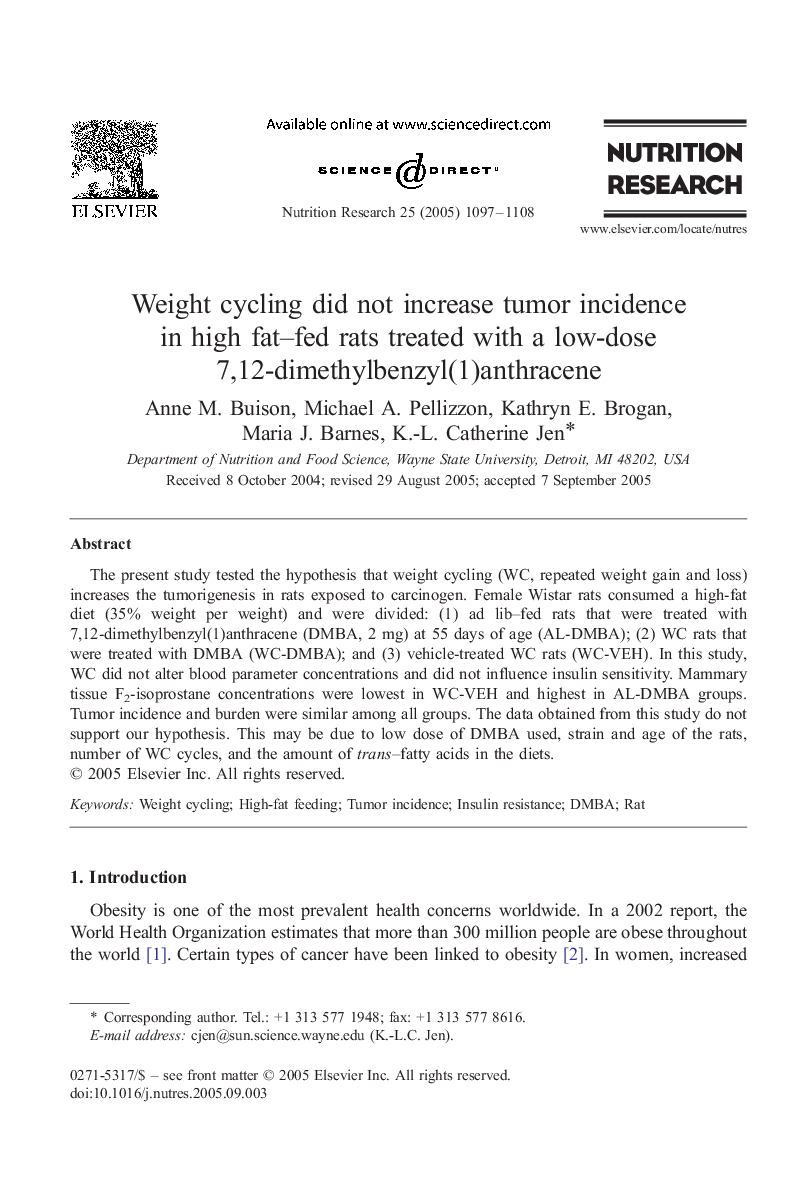| Article ID | Journal | Published Year | Pages | File Type |
|---|---|---|---|---|
| 9119437 | Nutrition Research | 2005 | 12 Pages |
Abstract
The present study tested the hypothesis that weight cycling (WC, repeated weight gain and loss) increases the tumorigenesis in rats exposed to carcinogen. Female Wistar rats consumed a high-fat diet (35% weight per weight) and were divided: (1) ad lib-fed rats that were treated with 7,12-dimethylbenzyl(1)anthracene (DMBA, 2 mg) at 55 days of age (AL-DMBA); (2) WC rats that were treated with DMBA (WC-DMBA); and (3) vehicle-treated WC rats (WC-VEH). In this study, WC did not alter blood parameter concentrations and did not influence insulin sensitivity. Mammary tissue F2-isoprostane concentrations were lowest in WC-VEH and highest in AL-DMBA groups. Tumor incidence and burden were similar among all groups. The data obtained from this study do not support our hypothesis. This may be due to low dose of DMBA used, strain and age of the rats, number of WC cycles, and the amount of trans-fatty acids in the diets.
Related Topics
Life Sciences
Biochemistry, Genetics and Molecular Biology
Endocrinology
Authors
Anne M. Buison, Michael A. Pellizzon, Kathryn E. Brogan, Maria J. Barnes, K.-L. Catherine Jen,
